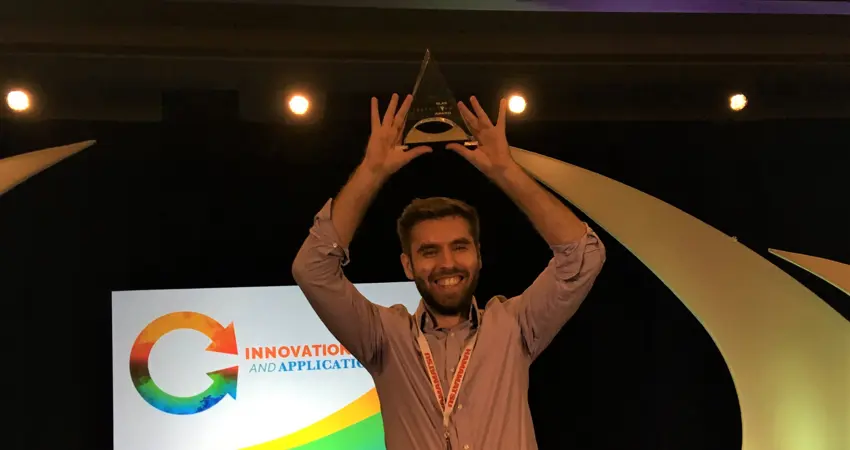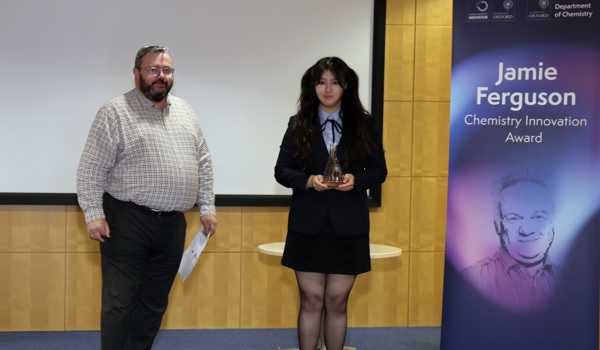14 Feb 2019
DPhil student’s “unique and special work” wins prize at Washington Conference
The Society for Laboratory Automation and Screening (SLAS) has bestowed one of their highest honours, the SLAS Innovation Award 2019, on Cristian Soitu, a DPhil student at the University of Oxford (Harris Manchester College).

This internationally-renowned award, which comes with a personal $10,000 cash prize, was open to scientists from both academia and industry at all career stages. It honours a fundamental study to develop new technology and/or use of technology to solve a unique problem.
Cristian won out of ten high-calibre finalists, from hospitals, academia and industry, selected to present their work at the SLAS2019 International Conference and Exhibition (2-6 Feb; Washington, DC). At the award ceremony, judges recognized Cristian’s presentation, ‘Microfluidic Chambers Using Fluid Walls for Cell Biology’, as “unique and special”.
Cristian explains: “My research focuses on developing a novel fluid-shaping technology that enables biologists to benefit from microfluidics using the materials they have used for decades – petri dishes and cell media. This exploits the dominance of interfacial forces at the microscale to create structures with fluid walls. Fluidic walls can morph and self-heal as required, while their contents are fully accessible and visible through excellent optical clarity – a critically important aspect in applications such as single-cell cloning”.
The versatility of this technology is demonstrated by performing a wide variety of workflows in cell biology (cloning, cryopreservation, immunolabeling and CRISPR-Cas9 gene editing). This transformative approach to manipulating small volumes eliminates the need for expensive equipment and expertise, and arrays of hundreds to thousands of fluidic chambers can be created and accessed in minutes on a single petri dish.
This multidisciplinary research was facilitated by his supervisors, Professor Edmond Walsh (Oxford Thermofluids Institute) and Professor Alfonso Castrejon-Pita (Fluid Dynamics Laboratory) of Engineering Science, and Professor Peter Cook at the Sir William Dunn School of Pathology. The research is funded by a University spin-out company, iota Sciences Ltd.
Cristian added: “The cross-disciplinary nature of this work provides an excellent foundation for translation to academic and industrial biomedical labs. It empowers biologists to access microscale investigations, and thereby enables the acceleration of existing assays and the development of new ones.”




